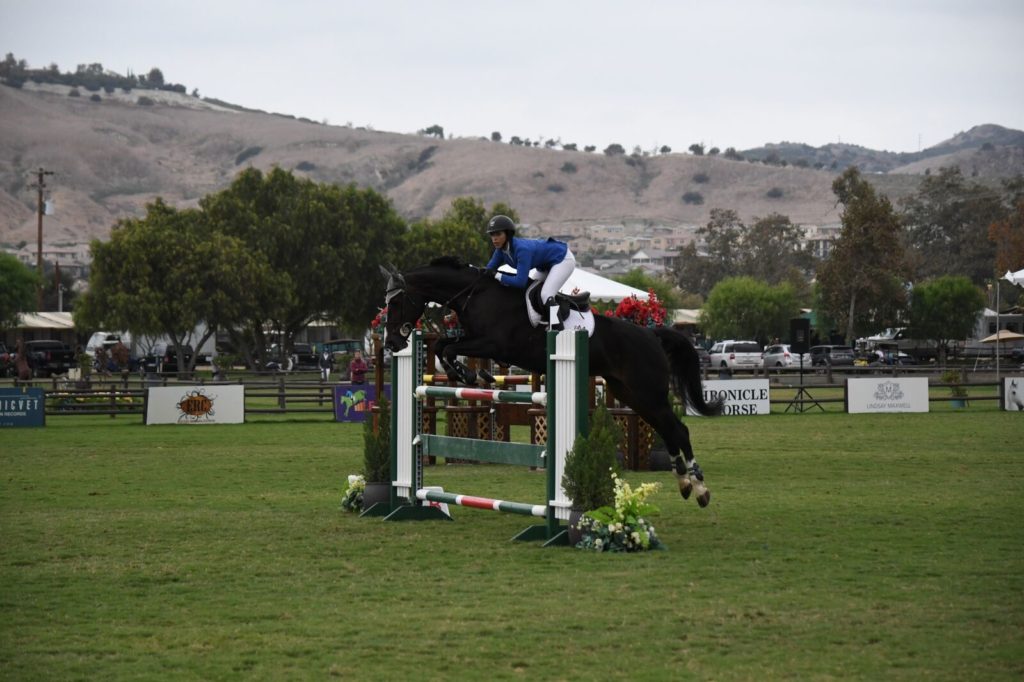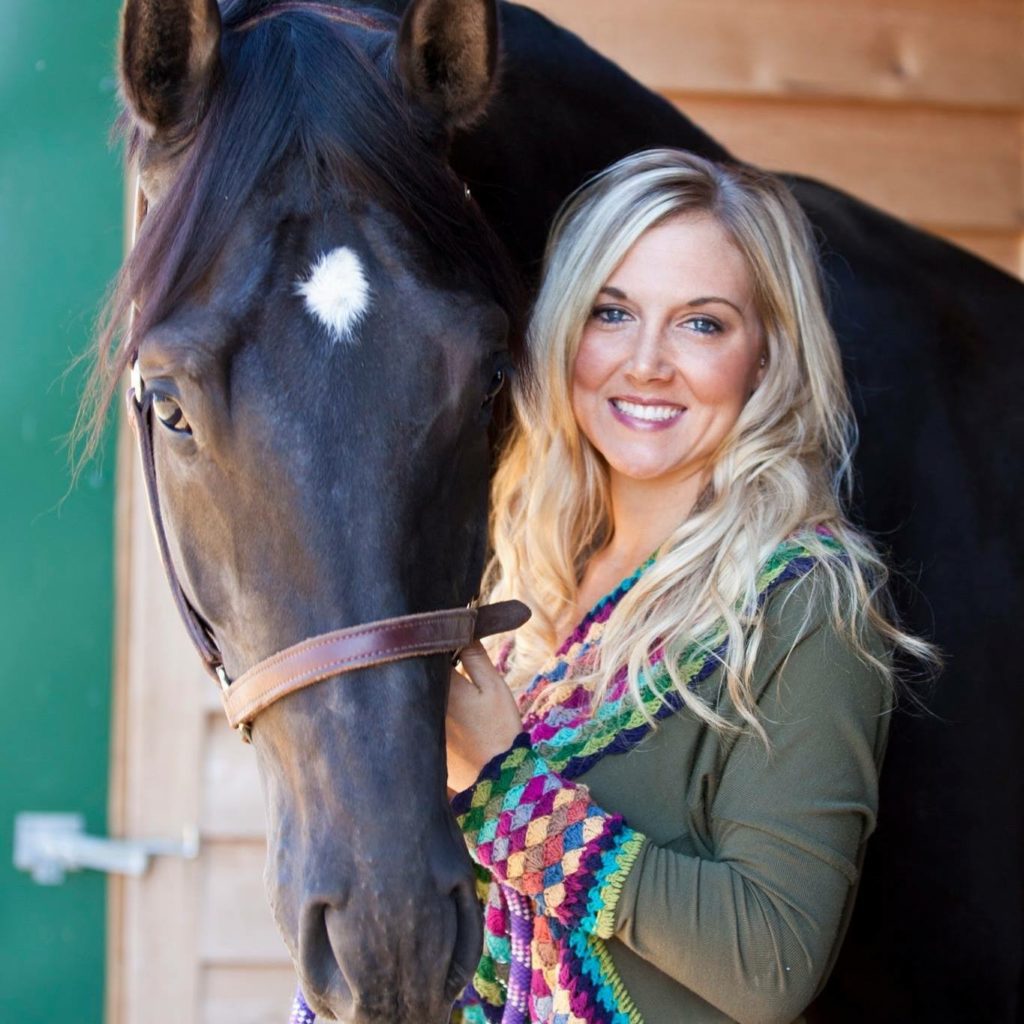Several talented writers entered our first ever JN Blogger Contest and after careful deliberation, we have narrowed down the pool to the top three entrants. For their final essay, each writer was given the topic “Full Care Facilities: Do They Help or Hurt the Future of Our Sport?” This week, we will feature of the final three contestants’ editorial perspective on the assigned topic and YOU will have the chance to vote for your favorite writer! Our second featured finalist is Melissa Collins. Get a glimpse of her opinion in today’s editorial column.

Photo by Alissa King / JN
I’ve seen it all too many times at the rated shows. An amateur is waiting to go into the ring, talking to their trainer and getting all the last minute instruction in before their round. Meanwhile the groom is putting finishing touches on the horse, shining the rider’s boots and making sure the horse is meticulously groomed. The rider jumps their round, exits the ring, dismounts, pats their horse on the neck and hands the horse to the groom. They head back to the stalls where the groom ensures the horse is properly cared for and all his needs are met.
While this may not be every rider on the circuit, it is fair to say it is becoming the vast majority. I often wonder if owners or juniors have any idea about the management program that goes into these top athletes to keep them performing at their best. There has been such a decline in “barn rats” or juniors that are hungry to learn all aspects of their horse, not just the riding portion. Where is the future of this sport headed… are full care facilities to blame?
When I was a kid both of my parents worked full time jobs, so in the summers before I got my driver’s license I would get up early with my mom and she would drop me off at the barn, sometimes before daylight, then pick me up on her way home from work that evening. Spending ten hours at the barn was just another average summer day. Of course I would jump at the opportunity to ride any horse I could, but the majority of my days were spent cleaning tack, tidying the barn, picking stalls, setting jumps, helping feed, and of course, cleaning stalls… a lot of stalls. A typical week consisted of cleaning 40-60 stalls. I even worked out a deal with the barn owner to clean my own stall daily for a discounted price on board. The days were long, and often not easy, but this is where I learned how to manage these finicky animals. This is how I learned to properly feed a horse, how to doctor wounds, deal with problem horses, and really learn the ins and outs of proper equine management.
Today I run a small training facility consisting of about 12 stalls. Most of my kids show up for their lessons, ride for an hour and won’t be back until their next scheduled lesson. No one typically stops by to groom, bathe, lunge or just spend time with their horse on a day they don’t have a scheduled lesson. They have no idea about their horse’s nutrition program, farrier or vet care, or what goes on into the day-to-day care of their horse. I always make sure their horses are ridden and prepped to have a successful lesson so they can leave happy and satisfied with their horse.
While I understand life gets in the way and most families have other kids and other sports to attend to, as well as church, homework, and other commitments, I have to stop and wonder what is the future of our sport going to be? Or more importantly WHO is the future of our sport going to be? We have made it so convenient as barn owners for clients to show up as little as possible, win a blue ribbon, and leave. In fact, I’m sure many trainers and barn owners even prefer it this way. However, the future of our sport is bleak if our juniors don’t understand the routine and maintenance that goes into these horses.
I have a lot of college students that come to my barn to ride. I joke all the time that I can run laps around these kids. However, the reality is that unless they are getting paid, they generally think they are doing me a favor in riding an extra horse or doing an extra barn chore. The work ethic is just not there anymore and we are to blame.
We as barn owners, trainers, parents and adults need to demand more from our juniors and amateurs. We have made it entirely too easy to show up, ride and leave. There is no expectation of cleaning your stall on your riding days or scrubbing out water buckets while you wait for your mom to pick you up. I can’t tell you the last time someone asked me to ride an extra horse or what they can do to help out around the barn.
Owning a top horse is so much more than just showing up, putting in a good round and winning a blue ribbon. There is an entire management program behind these horses helping to make them successful. A meticulous schedule involving vets, farriers, chiropractors, nutritionists, saddle fitters that all come together to make these athletes perform at their best. Until the next generation understands this and is eager to learn this, we won’t be putting out any top horsemen. Full care facilities and all the “extras” they can include, such as grooming, tacking your horse, bathing your horse etc., will be the decline of our future equestrian generation. Call me old fashioned but we have made it too easy to buy your way to the top.
 Melissa Collins runs a small hunter/jumper/equitation operation in rural Western KY where she specializes in young horse sales. She holds a bachelors degree in Agriculture from Murray State University. She and her husband run Collins Sporthorses with their two dogs and currently house around 14 horses.
Melissa Collins runs a small hunter/jumper/equitation operation in rural Western KY where she specializes in young horse sales. She holds a bachelors degree in Agriculture from Murray State University. She and her husband run Collins Sporthorses with their two dogs and currently house around 14 horses.
